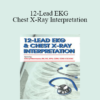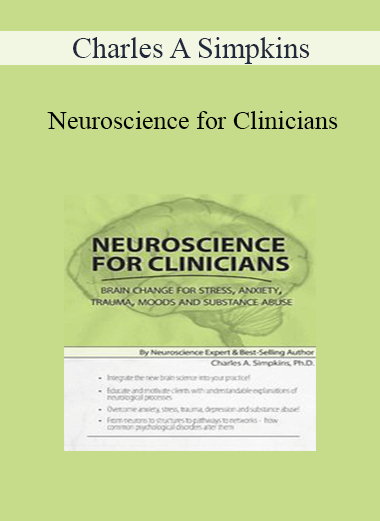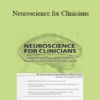$219.99 Original price was: $219.99.$41.00Current price is: $41.00.
[Instant Download] – Immediately deliver the download link after receiving the payment
 Purchase this course you will earn 41 Points worth of $4.10
Purchase this course you will earn 41 Points worth of $4.10Elevate your skills with the Charles A Simpkins – Neuroscience for Clinicians: Brain Change for Stress, Anxiety, Trauma, Moods and Substance Abuse course, available for just $219.99 Original price was: $219.99.$41.00Current price is: $41.00. on Utralist.com! Browse our curated selection of over 60,000 downloadable digital courses across diverse Uncategorized. Benefit from expert-led, self-paced instruction and save over 80%. Start learning smarter today!
[Instant Download] – Immediately deliver the download link after receiving the payment
Purchase Charles A Simpkins – Neuroscience for Clinicians: Brain Change for Stress, Anxiety, Trauma, Moods and Substance Abuse courses at here with PRICE $219.99 $41
- Faculty:
- Charles A Simpkins, PH.D.
- Duration:
- 5 Hours 37 Minutes
- Format:
- Audio and Video
- Copyright:
- Dec 16, 2016
Description
| Manual (27.58 MB) | 116 Pages | Available after Purchase |
Outline
- Tour through the Brain: What clinicians need to know from neurons to structures, to pathways, to networks
- See brain structures in 3-D
- How the brain processes top-down, bottom-up, and horizontal
- The interplay of mental health and key nervous system structures, functions, and pathways
- Work with implicit and explicit memories
- How key pathways inform clinical interventions:
- Pain Pathway
- Reward Pathway
- Fear-Stress Pathway
- Nervous System Networks and the Social Brain: We are wired for attunement
- Default Mode (DMN) and Task Mode Networks (TMN)
- Healing attachment
- Activate mirror neurons bottom-up
- Neuroplasticity and Neurogenesis: How the brain can change
- Three timeframes for change
- Neuroplasticity at the synapse
- How to foster neuroplasticity in clients
- Neuroplasticity in action: Exercise your brain!
- Practice Interventions for Healing: Bottom-up, top-down, and horizontal
- Sensory Awareness
- Meditation and Mindfulness
- Body Work
- Unconscious and the DMN
- The Mind-Body Link
- Integrate the Brain into Treatments
- Stress
- How stress alters the nervous system
- Calm the stress/fear pathway
- Develop alert/relaxed attention for better coping
- Trauma
- Foster confidence with yoga
- Malleability of memories and clinical implications for treating trauma
- Reconsolidate implicit memories
- Anxiety
- The anxious brain reaction
- Work top down/ bottom up/ horizontally
- Calm the limbic system bottom up with movement
- Soothe the insula through meditative sensory awareness
- Deconstruct sensations mindfully
- Substance Abuse
- Brain areas involved in addictions
- Rewire the reward pathway
- Detach from pleasure and pain
- Prefrontal connections and judgment
- Depression
- The depressed brain pattern
- Effects of yoga and meditation on the nervous system
- Regulate the limbic system: the prefrontal cortex, cingulate gyrus and mindfulness
- Unify real and ideal
- Foster joyful relationship through mirror neurons
- Develop compassion and gratitude
- Stress
- 6 Principles for Incorporating the Brain into your Therapy
Faculty
Charles A Simpkins PH.D. Related seminars and products: 4
Charles A. Simpkins, Ph.D., is a psychologist specializing in neuroscience, psychotherapy, meditation and hypnosis. With his wife, Annellen, Charles has co-authored 28 books, many of them bestsellers. Their most recent books on neuroscience are Yoga and Mindfulness Therapy Workbook for Clinicians and Clients (PESI, 2014), Neuroscience for Clinicians (Springer, 2012), The Dao of Neuroscience (Norton 2010) and Neuro-Hypnosis (Norton 2010). They have also written about meditation for healthy mind-brain change: The Tao of Bipolar, (New Harbinger 2013), Zen Meditation in Psychotherapy (Wiley, 2012), Meditation and Yoga in Psychotherapy (Wiley, 2011), and Meditation for Therapists and Their Clients (Norton 2001). Their books have over 20 foreign editions and have won numerous awards.
Dr. Simpkins has practiced psychotherapy for more than three decades, and taught meditative and hypnotic methods to facilitate mind-brain change to people of all ages. He has been involved in neuroscience for 18 years – integrating it into treatments and helping to bring the most recent research findings to practitioners. He presents seminars at professional conferences, state mental hospitals, university campuses and to popular and professional audiences around the world. Charles performed psychotherapy research and is currently doing a neuroscience study of unconscious movement. He has studied with psychotherapy masters, including Milton H. Erickson, Jerome D. Frank, Carl Rogers, Lawrence Kubie, and Ernest L. Rossi, and neuroscience innovators including Vilayanur Ramachandran, Jaime Pineda, Paul and Patricia Churchland, Stephen Anagnostaras, and William Bechtel.
Purchase Charles A Simpkins – Neuroscience for Clinicians: Brain Change for Stress, Anxiety, Trauma, Moods and Substance Abuse courses at here with PRICE $219.99 $41
Cultivate continuous growth with the Charles A Simpkins – Neuroscience for Clinicians: Brain Change for Stress, Anxiety, Trauma, Moods and Substance Abuse course at Utralist.com! Unlock lifetime access to premium digital content, meticulously designed for both career advancement and personal enrichment.
- Lifetime Access: Enjoy limitless access to your purchased courses.
- Exceptional Value: Benefit from savings up to 80% on high-quality courses.
- Secure Transactions: Your payments are always safe and protected.
- Practical Application: Gain real-world skills applicable to your goals.
- Instant Accessibility: Begin your learning journey immediately after buying.
- Device Compatible: Access your courses seamlessly on any device.
Transform your potential with Utralist.com!
Related products
Uncategorized
Disordered Eating Behaviors: Identify and Treat the Underlying Trauma – Lori Kucharski
= 85 Points
Uncategorized
= 85 Points
Uncategorized
Proven Fall Prevention Strategies: Exercise, Meds Management and Home Modification – Trent Brown
= 40 Points
Uncategorized
Legal Risks in Nursing Documentation – Use Extreme Caution When Skimming the Facts – Rosale Lobo
= 40 Points
Uncategorized
Cognitive Rehabilitation Therapy: Practical Interventions and Personalized Planning – Jane Yakel
= 85 Points
Uncategorized
Managing Patient Emergencies: Critical Care Skills Every Nurse Must Know – Dr. Paul Langlois
= 85 Points
= 85 Points
= 72 Points

![[Audio and Video] Advanced Techniques of Hypnosis & Therapy: Working with Resistance (Stream)](https://utralist.com/wp-content/uploads/2023/04/Audio-and-Video-Advanced-Techniques-of-Hypnosis-Therapy-Working-with-Resistance-Stream-100x100.png)



